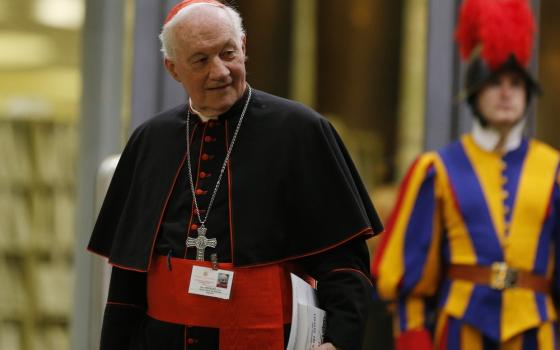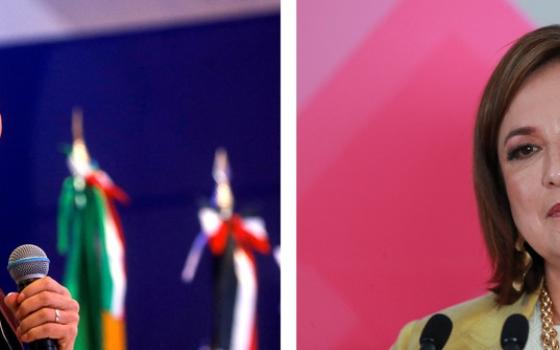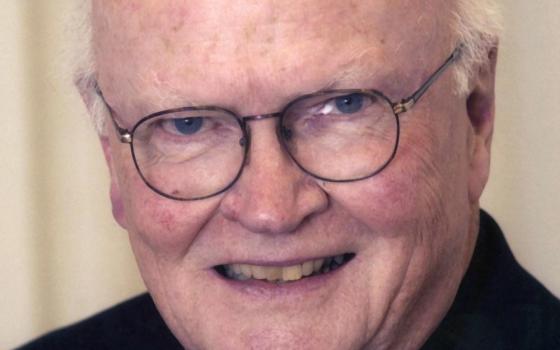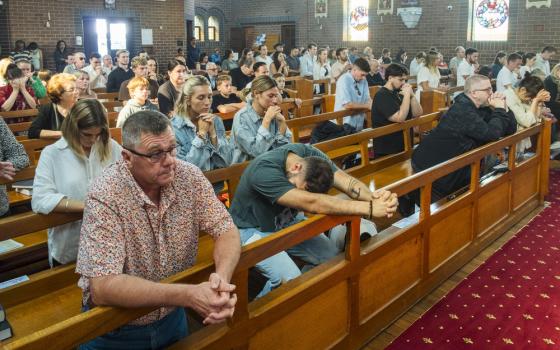By JOHN L. ALLEN JR.
Los Angeles
Strictly speaking, there’s not much ecclesiology being done in Asia, a leading Asian-American theologian said today. There’s a simple reason for that, he said – Asian Catholics aren’t terribly interested in the church, at least as a theological topic.
Fr. Peter Phan, who was born in Vietnam and today teaches at Georgetown, said that Asian Catholics “approach the church through the lens of the Reign of God,” and hence are more interested in the church’s engagement with the world than with internal ecclesiastical questions.
Phan spoke to a session on “The Asian Church: Methodology, Theology and Ecclesiology" during the Catholic Theological Society of America's annual conference.
Surveying Asian theology, Phan said, one will find a “conspicuous absence of the issues that have preoccupied Western theologians.” Examples, he said, include “papal primacy, infallibility, the Roman Curia, episcopal collegiality, the ordination of women, celibacy, and institutional reform.”
Instead, Phan said, the Asian focus quickly moves “from ad intra to ad extra, from self-absorption into mission.” In that sense, he said, it’s “ecclesiology of kenosis,” referring to the self-emptying of Christ.”
Phan said that impressions of conflict between Asia and the Vatican have been “overblown.” The Vatican’s 2000 document Dominus Iesus, insisting upon Christ as the lone and unique savior of humanity, was widely read as a critique of Asian theological currents, but Phan said that no Asian theologian or bishop would challenge its core claims – that Christ must not be separated from the Holy Spirit, or the church separated from the Kingdom of God.
“The point that Dominus Iesus missed totally,” Phan said, “is that it’s not a theological issue, but a practical question of priorities. When push comes to shove, if you’ve only got $20,000 to spend, how do you spend it? Do you build a church, or do you do something to promote God’s reign, that is for non-Christians too?”
In the Asian way of thinking, Phan said, the Reign of God comes first, the mission serving it second, and the church third.
“If people come to the church, that’s great,” he said. “But if they continue as Hindus or Buddhists, that’s great as well. Our concern is not to increase the number of Christians in Asia, but to promote the Kingdom.”
Similarly, Phan argued that attention to the Holy Spirit in Asian theology is not a matter of separating Christ and the Spirit, but the practical need to converse with non-Christians.
“In a context in which only three percent of Asians are Christians, how do you account for salvation and goodness in Asia? To talk to non-Christians, to say that their religions have elements of truth and goodness, how do you explain it except through the Holy Spirit?” he asked.
In the same way, Phan said, Asian theology does not oppose dialogue and proclamation or evangelization. Rather, it sees dialogue as the “modality” for the church, as what it means to be a Christian in Asia.
In that sense, Phan said, he believes “Asian ecclesiology may contribute to the reshaping of Western ecclesiology.”
Emeritus Bishop John Cummins of Oakland, the longtime liaison for the U.S. bishops to the Federation of Asian Bishops’ Conference (FABC), agreed that the Holy Spirit is a major emphasis in Asian theology. He noted, for example, that in the concluding document from the 1998 Synod for Asia, an entire chapter is devoted to the Holy Spirit, whereas the document from the Synod for America in 1997 devoted only a handful of pages to the subject.
Cummins praised what he called the “poetry” of Asian writing on Jesus, referring to Christ as “the compassionate friend of the poor” and “the enlightened one.”
Cummins agreed with Phan that perceptions of a rupture between the Asian bishops and Rome have been exaggerated. In fact, he said, he’s been struck by how devoted Asian Catholics seem to be to the pope. Initially, he said, he suspected this was because they are often a tiny minority and see their connection to the pope as a sort of lifeline. Later, Cummins said, Asians explained to him that it is instead a consequence of their cultural emphasis on harmony. Asians do want to be separated, he said, from the broader community.
Promoting the Asian presence in the American church is important, Cummins argued, saying he would especially like to see more Asian-American leadership in interreligious dialogue in the United States.
Edmund Chia of the Catholic Theological Union offered some behind-the-scenes insight on the FABC. Born in Malaysia of Chinese descent, Chia is a former staffer member for the Asian bishops.
Encompassing 27 nations, the FABC is quite diverse, Chia said. One problem is language. Most business is conducted in English, so bishops from countries where English is not widely spoken, such as Japan and Korea, often feel at a disadvantage. Another is that Asian Catholicism has two powerhouses, the Philippines and India, and sometimes there’s a sense of rivalry between the two in the workings of the FABC. Of the roughly 600 bishops who make up the FABC, Chia said, roughly half of them come from these two nations.
One unique feature of the way FABC prepares its documents, Chia said, is that bishops and their advisors will go on “immersion experiences” in various settings, such as a slum, or a rural community, or a Buddhist monastery, and then come back to do the theological reflection. That way, he said, they ensure that they’re grounded in the social reality about which, and to which, they wish to speak.
Chia said that Asian Catholic theologians, as well as invited consultants from other religious traditions, work closely with the bishops in developing the FABC documents. Chia told the story of one veteran Filipino theologian upon whom the bishops especially relied. Normally, he said, the drafting committee of bishops along with the theologian would meet in the evening around 8:00 pm and work until 11:00 pm. Then one of the bishops would go to the refectory, bring back a pot of coffee and a cup, set them in front of the theologian and say, “Good night, Father!” Then the bishops would disappear, leaving the theologian to work through the night in order to finish their document by 8:00 am the next day.
Like Phan, Chia said that the FABC’s emphasis is on mission in an overwhelmingly non-Christian context. He cited the example of the theme of the 1998 Synod for Asia, which was chosen by the Vatican: “Jesus Christ the Savior and His Mission of Love and Service in Asia.” When the FABC organized its plenary meeting in 2000, the bishops decided they wanted to continue the discussions from the synod. They did so with the theme, “A Mission of Love and Service.” In other words, they deleted the specific reference to Jesus.
Chia described the choice as an “instinctive sense” of what would communicate best in Asia, rather than the result of any “grand vision.”




